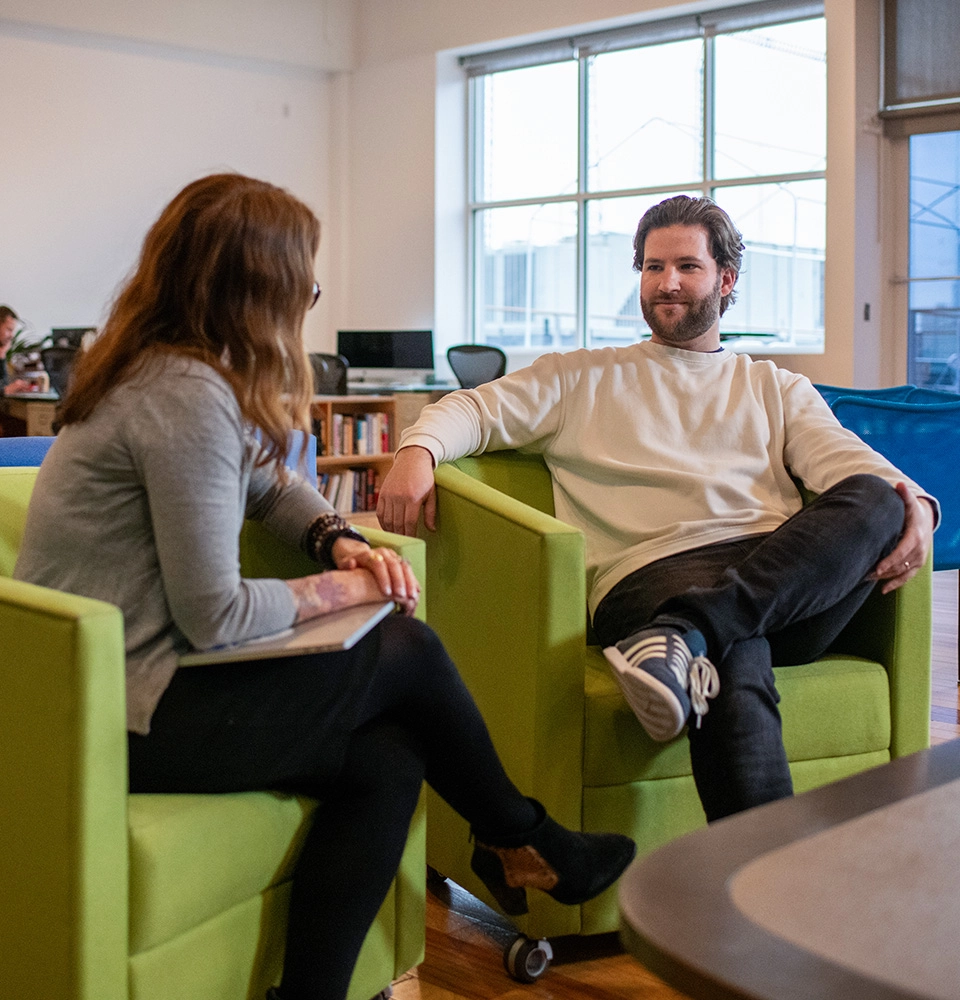Empowering Universities to Transform the World
Tech-enhanced strategy and services to solve higher ed’s biggest challenges

Introducing our newest offering: Graduate Enrollment Matching Service (GEMS)
Built by ETS and Noodle, GEMS removes the uncertainty from graduate recruitment by combining opt-in ETS data with high-touch advising. We support students through the enrollment journey—and institutions only pay for confirmed enrollments.
Learn moreSolutions as Unique as Your Challenges
One size doesn’t fit all. Each university’s diverse challenges and goals demand a unique blend of strategy, technology, marketing, and learning design. These are the challenges we embrace. A true partner at every step, we collaborate with transparency, flexibility, and efficiency alongside university teams to boost and extend internal capacity. We don’t have all the answers, but we do specialize in tackling the problems that can’t be solved with a one-dimensional approach.

- Market & Competitor Analysis
- Organizational Guidance
- Budgeting & Operations
- Strategy & Scenario
- Financial Transformation & Growth
- Online & Hybrid Learning
Results by the Numbers
It’s not just about our milestones; it’s about the remarkable strides universities make when we work together. Each statistic is a testament to the universities we empower, their success stories, and the countless students who’ve benefited from enhanced educational experiences.
7000+
students served
Our collaborations with universities are helping thousands of learners reach their goals.
100+
credentials launched
We’ve partnered with institutions to bring over 100 diverse educational offerings to life.


Building the Talent Pipeline for Employers
Finding, retaining, and maximizing the performance of great employees is more critical than ever. Noodle’s University-to-Employer (U2E) model helps corporations identify employee candidates from our network of top universities and provide them with world-class courses, degrees, and certificate programs in exchange for employment upon graduation. Higher ed as a benefit is proven to reduce attrition and raise performance, benefiting employees and employers alike.
“Colleges and universities need more than successful online degree programs; they need to think through the combination of in-house staff and outside support services as they add internal capacity and as more and more of their students are neither on-campus nor working during business hours. We believe Noodle has the unique capacity to help schools address these needs.”
John Katzman CEO, Noodle
Empowering Academic Excellence Worldwide
We’re honored to work alongside these prestigious institutions, assisting them in amplifying their impact and reaching new heights. Our mission is to be a seamless extension of their commitment to innovation, ensuring students receive the best education possible. Explore the growing family of universities that trust and thrive with Noodle’s support.
Explore Our Partnerships
Ready to begin your journey?
Noodle is your dedicated thought partner in unlocking your university’s potential. Let’s get started.
Discover Insights. See Results. Join the Conversation.
Dive into expert analysis, proven impact, and dynamic events that shape the future of higher education. Through deep partnership and shared purpose, we help institutions stay ahead—connecting strategy with action to drive meaningful change.
Insights
Stay ahead of the curve.
Emerging trends, expert research, and success stories that reveal new ways to elevate the learner experience.
View InsightsResults
Measurable impact of our partnerships in action.
Discover case studies that highlight how our technology and collaboration drive meaningful outcomes for students and institutions.
View ResultsEvents
Noodle is always on the move.
Join us for upcoming appearances where we engage, collaborate, and spark new ideas—keeping pace with the evolving higher ed landscape.
View Events